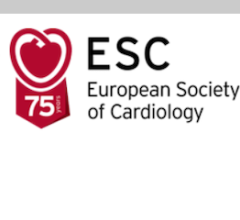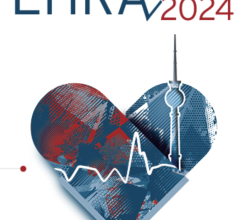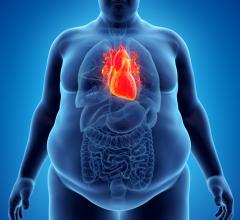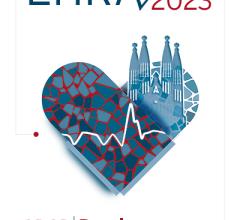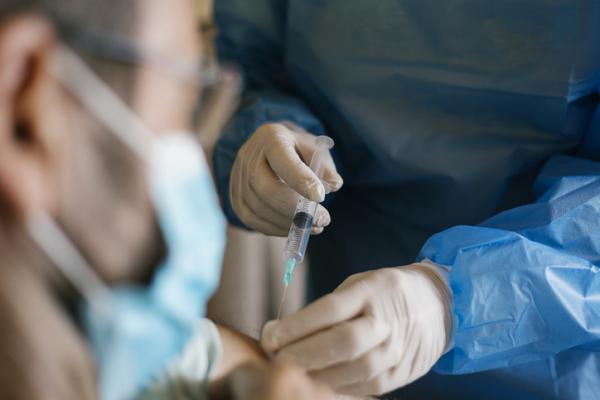
Image credit: Getty Images
March 22, 2022 — A small study has shown that SARS-CoV-2 vaccination in patients who had an inflamed heart muscle in the past is not associated with a recurrence of the condition or other serious side effects. The research is presented at ESC Acute CardioVascular Care 2022, a scientific congress of the European Society of Cardiology (ESC).1
“These results provide reassuring data that may encourage patients with a history of myocarditis to get vaccinated against SARS-CoV-2,” said study author Dr. Iyad Abou Saleh of Hospices Civils de Lyon, France. “It should be noted that the majority of patients in our study received the BNT162b2 mRNA vaccine and therefore the findings may not apply to other vaccines.”2
Myocarditis is an inflammation of the heart muscle. Signs and symptoms include fatigue, chest pain, shortness of breath, and rapid heartbeats. The inflammation can reduce the heart's ability to pump and can also cause arrhythmias (irregular heartbeats). Prevalence is estimated at 10 to 106 cases per 100,000 individuals worldwide.3 The leading cause of myocarditis is viral infection.
Rare cases of myocarditis following SARS-CoV-2 vaccination have been reported in the scientific literature with a prevalence of 2.1 cases for 100,000 inhabitants.4-6 However, there are a lack of data regarding the risk of myocarditis recurrence after SARS-CoV-2 vaccination in patients with a history of the condition.
Dr. Abou Saleh pointed out: “Our experience shows that in some situations patients have avoided vaccination because they, or their GP, were afraid it could cause another bout of myocarditis. We hypothesized that SARS-CoV-2 vaccination would not increase the risk of myocarditis recurrence in patients who had the condition in the past.”
The researchers included all patients hospitalized in Hospices Civils de Lyon during the last five years (from January 2016 to June 2021) with a diagnosis of acute myocarditis. Patients were contacted by telephone and asked if they had been vaccinated, with which vaccine, how many times, and whether they had any side effects. Patients were also asked if they currently had COVID-19 or had contracted it in the past.
A total of 142 patients with a prior history of confirmed acute myocarditis were enrolled in the study. The average age was 31 years and 20.3% were women. Among them, vaccination status was known for 71 patients (50%): 55 patients were vaccinated and 16 were not vaccinated. The main reason given for not getting the vaccine was the fear of myocarditis recurrence (12 patients, 75% of non-vaccinated patients). Vaccination status was unknown for 66 patients and five patients had died before the COVID-19 outbreak.
Among the vaccinated patients, 12 had one dose and 43 had two doses. Patients were mainly vaccinated with BNT162b2 mRNA (53 patients, 96.4%). One patient had the mRNA-1273 vaccine7 and one had the Ad26.COV2-S [recombinant] vaccine.8
The researchers also obtained information about side effects following vaccination from medical records. These included serious events such as death, arrhythmias, and recurrent myocarditis. There were no serious adverse events after SARS-CoV-2 vaccination.
Dr. Abou Saleh said: “We showed that SARS-CoV-2 vaccination in patients with a history of acute myocarditis is not associated with a risk of recurrent myocarditis or other serious side effects. Our results should be interpreted with caution due to the small number of patients and the predominant use of one type of vaccine.”
References:
1 The abstract ‘Safety of SARS-CoV-2 vaccination in people with a history of acute myocarditis’ will be available on demand on the ‘e-Posters session’.
2 BNT162b2 mRNA is the Pfizer–BioNTech vaccine.
3 Golpour A, Patriki D, Hanson PJ, et al. Epidemiological impact of myocarditis. J Clin Med. 2021;10(4):603.
4 Barda N, Dagan N, Ben-Shlomo Y, et al. Safety of the BNT162b2 mRNA Covid-19 vaccine in a nationwide setting. N Engl J Med. 2021;385:1078–1090.
5 Witberg G, Barda N, Hoss S, et al. Myocarditis after Covid-19 vaccination in a large health care organization. N Engl J Med. 2021;385:2132–2139.
6 Bozkurt B, Kamat I, Hotez PJ. Myocarditis with COVID-19 mRNA vaccines. Circulation. 2021;144:471–484.
7 mRNA-1273 is the Moderna vaccine.
8 Ad26.COV2-S [recombinant] is the Janssen vaccine.
Related Long-COVID Content:
MRI Sheds Light on COVID Vaccine-Associated Heart Muscle Injury
What We Know About Cardiac Long-COVID Two Years Into the Pandemic
VIDEO: Long-term Cardiac Impacts of COVID-19 Two Years Into The Pandemic — Interview with Aaron Baggish, M.D.
VIDEO: Long-COVID Presentations in Cardiology at Beaumont Hospital — Interview with Justin Trivax, M.D.
VIDEO: Cardiac Presentations in COVID Long-haulers at Cedars-Sinai Hospital — Interview with Siddharth Singh, M.D.
Find more COVID news and videos
Related COVID Content:
COVID-19 Fallout May Lead to More Cancer Deaths
Kawasaki-like Inflammatory Disease Affects Children With COVID-19
FDA Adds Myocarditis Warning to COVID mRNA Vaccine Clinician Fact Sheets
CMS Now Requires COVID-19 Vaccinations for Healthcare Workers by January 4
Cardiac MRI of Myocarditis After COVID-19 Vaccination in Adolescents
Small Number of Patients Have Myocarditis-like Illness After COVID-19 Vaccination
Overview of Myocarditis Cases Caused by the COVID-19 Vaccine
Case Study Describes One of the First U.S. Cases of MIS-C
NIH-funded Project Wants to Identify Children at Risk for MIS-C From COVID-19


 August 29, 2025
August 29, 2025 
